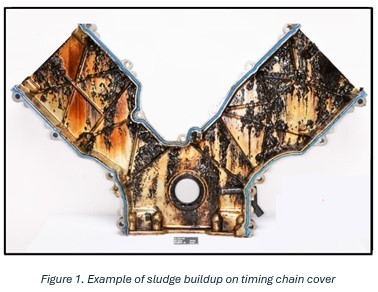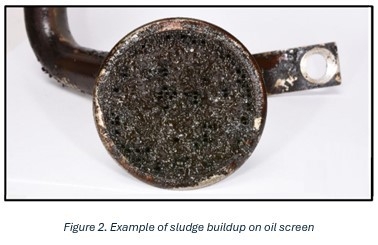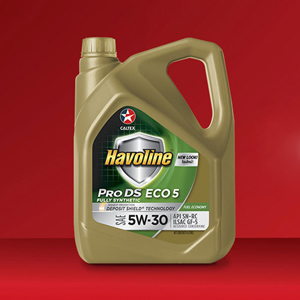Auto manufacturers around the world are building lighter and more fuel-efficient internal combustion cars as demanded by government regulations and consumer demand. In the Middle East and the GCC, more than 60% of 20-35-year-olds prefer better mileage from their cars than power. On the other side of the coin, technological advancements have allowed engines to meet modern demands of improved longevity and efficiency.
Today, cars last longer than they did a decade back, and this means they have to be regularly maintained. The average age of a car in the GCC is around six years which is 50% higher than just a few years back. An average car over five years old in the UAE would have garnered 103,900 km while the global average is only 47,000 km. Used cars in the GCC alone run more than 47,000 km in their second stint. The trend is clear--consumers are driving their cars longer and further. They want to maximize their investment, be prudent and environmentally conscious.
Since 2010, popular Japanese car manufacturers like Honda and Toyota, which have a major presence in the Middle East, have upgraded their engine oils. Most of their modern engines use the low viscosity SAE 0W-20 grade oil.
How to maintain cars that have run more than 100,000 km?
Seals, gaskets and oil filters degrade over time with regular use and oil eventually starts to leak, and the engine will begin guzzling more oil to keep the performance up. An internal combustion engine running on low oil is harmful. To address this problem, car manufacturers recommend using high-mileage engine oils that have been specifically designed to protect cars that have crossed 100,000 km.
Benefits of using high mileage oils over conventional Oils
High mileage oils prevent leaks by using components that restore degraded to reduce or prevent leakage. They offer better engine wear protection for older cars than if conventional low viscosity engine oils are used. High-mileage engine oils also protect engines against sludge and deposit buildup. The robust detergency and dispersancy in the formulation of high-mileage oils also helps clean away unwanted materials deposits and keep sludge dispersed.
What’s On The Horizon
Engine wear is the most significant concern for automobile manufacturers on their journey to produce fuel-efficient cars that must last long. They have partnered with oil companies like Caltex to develop engine oils that will support longevity, durability and efficiency consumers expect today. While the trend in the UAE is the SAE xW-30 grade, the industry is actively looking at moving to SAE 0W-20. In the near future, we will see the upsurge of synthetic-blend and full synthetic high-mileage oils.
All of this is good news for consumers. Cars will last longer without lagging in performance because lubricant manufacturers like Caltex are responding with engine oils that make it possible.
Importance of Changing Your Engine Oil.. and the risks of neglecting it
Changing your engine oil regularly is one of the most important car maintenance tasks that you can do to keep your vehicle running smoothly and efficiently.
Engine oil lubricates, cools, cleans, and protects engine moving parts from wear and tear. It also helps to filter out impurities, debris, and pollutants from the engine, keeping it clean and efficient. Not only that, engine oil also prevents corrosion and rust, extending the lifespan of the engine.
What happens if I neglect the oil change?
If you don't change your engine oil on a regular basis, you are risking serious consequences for your vehicle and your wallet, which may lead to:
- Lower fuel efficiency: Degraded engine oil can cause deposits to build up on engine parts, such as the pistons, valves, and injectors. These deposits can limit the airflow or fuel supply to the engine, causing incomplete combustion. The engine may then be forced to increase the fuel-air ratio, which means that now more fuel is needed to produce the same amount of power.
- Higher emissions: Incomplete combustion can also lead to higher emissions of harmful greenhouse gases, such as carbon monoxide, hydrocarbons, nitrogen oxides, and other pollutants that can harm human health and the environment.
- Overheating: As oil gets contaminated with dirt, metal particles, and other impurities, it thickens. The oil then becomes less effective in flowing through the engine to dissipate heat, resulting in increased engine temperature.
- Engine damage: High temperature, pressure, and oxidation can degrade engine oil over time. As the oil loses its lubricating properties, it causes metal-to-metal contact that increases the friction and wear between the engine parts. The acidity in degraded engine oil can also corrode metal surfaces of the engine.
- Sludge buildup: As oil becomes contaminated over time. These particles will settle and cause sludge buildup. Sludge is a thick, sticky, gel-like substance that can clog oil passages and prevent oil from reaching all parts of the engine. This can lead to restricted oil flow and the engine may suffer irreparable damage, resulting in the complete loss of your vehicle or a very costly repair.


So how often should I change my engine oil?
The recommended interval for changing your engine oil depends on various factors, such as the type of oil (conventional or synthetic), vehicle model, condition of the engine, driving conditions, and the owner’s driving habits. For instance, if you mostly do short drives, in severe weather, with heavy loads, or in traffic that stops and starts, you may have to change your oil more frequently than if you mostly do long drives on highways in moderate weather.
You should always check your owner's manual for the specific guidance for your car and follow the service minder, if your car has one. These systems monitor how hard you drive your car and adjust the oil change frequency accordingly.
It is also important to check your oil level regularly and top it off if necessary. Some newer cars may require more oil top-offs in between changes. When you check your oil, you should also pay attention to the color. While oil color is not the only sign of oil condition, good oil should be a clear, brown-black color. If the oil is cloudy or milky, you need to service it as soon as possible.
Changing your engine oil regularly is a simple and cost-effective way to extend the life of your engine and avoid expensive repairs. Don't neglect this vital fluid and risk damaging your car. Schedule an oil change today and enjoy the benefits of a well-maintained engine.

About Author
Anita Leung has held various technical positions at Chevron specializing in engine oil development, including research on next generation additives and product development of Chevron's latest line of GF-6 passenger car motor oil. She is currently the North America Product Technical Specialist responsible for passenger car and motorcycle engine oil, as well as the Techron branded aftermarket fuel additive. Anita also holds a U.S. patent on a gasoline additive manufacturing process. She has a B.S. in Chemistry from the University of California, Berkeley, and a M.S. in Environmental Science from the Hong Kong University of Science and Technology.
ARTICLES FOR YOU
ARTICLES FOR YOU

Synthetic Oils Are The Wave Of The Future For Passenger Cars

Trends in Passenger Car Motor Oils: Evolving Engine Technology Driving Change

GM’s dexos1™ PCMO Specification Knowledge

Base Oil Basics: Quality Starts At The Base
Need more assistance?
Begin your journey towards world class products and services with Caltex.















